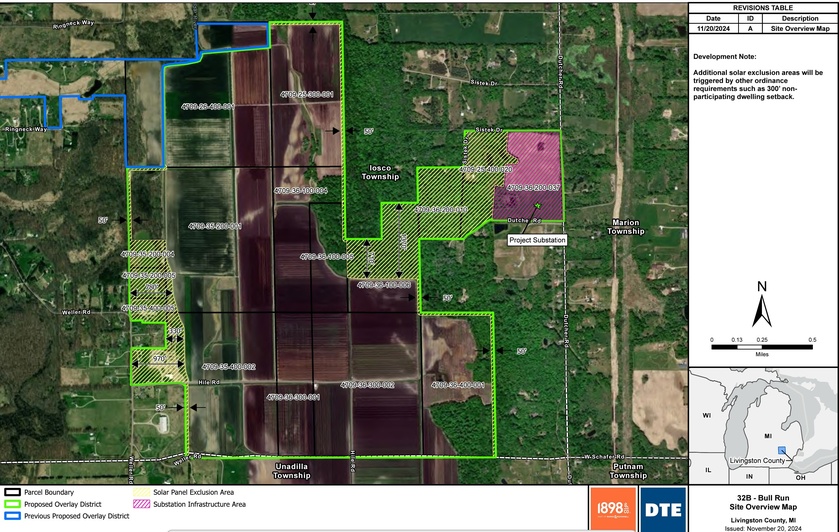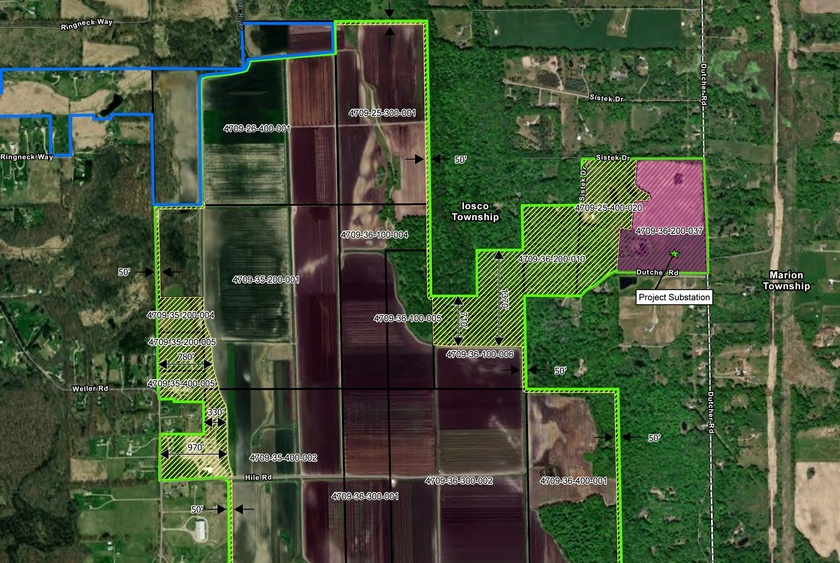IOSCO TOWNSHIP, Mich. (AP) — DTE Electric Company has proposed a conditional rezoning plan to establish utility-scale solar energy systems in Iosco Township, part of a broader push for renewable energy across Michigan. The project aims to cover two districts with approximately 1,283 acres of gross available solar area, taking into account environmental constraints such as wetlands and wooded areas.
While DTE highlights the project’s alignment with the township’s 2021 Master Plan and promises economic benefits, opposition is mounting from residents and critics who argue that solar energy may not be the best solution for Michigan’s energy needs. This proposal follows the controversy surrounding the Gaylord Solar Project in Otsego County, where environmentalists and residents objected to habitat fragmentation and potential harm to wetlands, sparking debates about the state’s approach to renewable energy.
Support my independent journalism by becoming a paid subscriber. I can't do this work without you. It's $6 a month. Quit at anytime.

Solar Energy’s Limitations in Michigan
Critics of large-scale solar developments, including the Mackinac Center for Public Policy, argue that solar power has inherent limitations in Michigan due to its geography and climate. The state averages fewer sunny days per year compared to regions in the Southwest, where solar energy production is more efficient and reliable. Additionally, Michigan’s long winters and cloud cover further reduce the viability of solar as a consistent energy source.
The Mackinac Center has also raised concerns about the economic inefficiency of solar power, noting that utility-scale solar projects often require significant subsidies, taxpayer support, and regulatory mandates to remain viable. According to their research, reliance on solar energy risks creating an unstable energy grid, particularly during peak demand in winter when solar production is at its lowest. This instability, they argue, could lead to increased costs for consumers and potential energy shortages.
Community Concerns and Potential Impact
Residents of Iosco Township have expressed concerns about the visual and environmental impact of the proposed project, particularly the disruption to the area’s rural character. The plan includes a 300-foot buffer from non-participating residences and a 50-foot setback from property lines and roadways, but critics worry that these measures may not sufficiently mitigate the visual intrusion of rows of solar panels.
DTE has pointed to findings from a CohnReznick LLP study, which concluded that similar solar projects in Michigan, such as the Assembly Solar Farm and DeMille Solar Park, had no consistent negative effects on surrounding property values. However, some residents remain skeptical, citing concerns over the long-term effects on their community.
Balancing Renewable Energy and Practicality
Proponents of solar energy highlight the potential economic benefits, including eligibility for Michigan’s Renewable Ready Communities grant, which could bring in more than $500,000 for the township. DTE has also emphasized the job opportunities and increased tax revenues that could result from the project.
However, critics argue that Michigan’s renewable energy policies should prioritize a diverse mix of sources, including nuclear and natural gas, which provide more consistent energy production. The Mackinac Center suggests that policymakers should consider the cost and reliability of energy sources rather than focusing exclusively on solar and wind, which are intermittent and require backup from fossil fuels or batteries.
The Iosco Township Planning Commission is set to review the proposal in the coming months. As the debate continues, the project highlights the challenges of balancing environmental goals with the practical realities of energy production in Michigan.
NOTICE: Dave Bondy works as the digital video manager for ther Mackinac Center




















